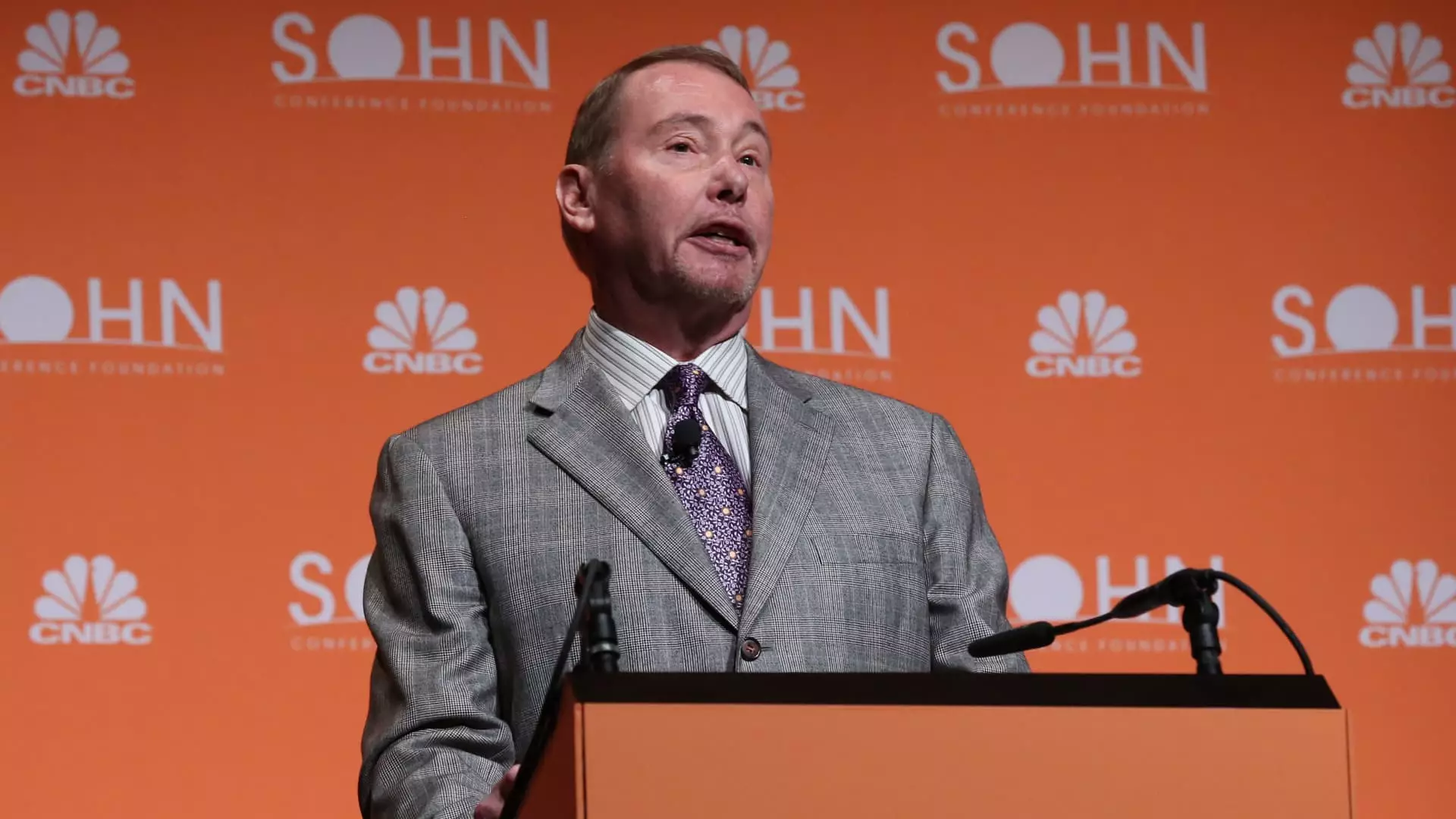In the ever-evolving narrative of U.S. politics and its profound influence on the economy, the recent speculations surrounding the House of Representatives captured the attention of investors and economists alike. With the Republicans potentially securing control over the House, there comes a flood of projections regarding fiscal policies, government spending, and, most crucially, interest rates. Jeffrey Gundlach, an influential figure in the world of fixed-income investment and CEO of DoubleLine Capital, has articulated serious concerns about how this political shift could result in a significant increase in interest rates due to elevated government borrowing.
Gundlach elaborates that should a Republican majority take control of the House, it may pave the way for what he describes as a “governing trifecta.” Such a scenario could essentially give President-elect Donald Trump unfettered power to implement expansive fiscal policies. The anticipated result? Increased government spending necessitating greater borrowing, as the Treasury’s need to issue more bonds surges. This would place upward pressure on bond yields, a situation Gundlach warned about on CNBC’s “Closing Bell.” His foresight paints a rather turbulent picture for the bond market, where yield compression could give way to alarming increases if government spending doesn’t align with economic growth.
Adding fuel to the fire is the existing fiscal climate that reveals a staggering budget deficit exceeding $1.8 trillion for the fiscal year 2024, with over $1 trillion purely allocated to servicing the burgeoning $36 trillion national debt. As the Federal Reserve continues to navigate its monetary policies—most recently cutting interest rates—market participants brace for further adjustments in the coming years. Concerns like Gundlach’s reflect the reality that continued tax cuts and government spending increases could exacerbate an already precarious fiscal situation.
The prospect of extending or introducing new tax cuts under Trump’s administration looms large. Gundlach asserts that such developments could add substantially to the national deficit, amplifying questions surrounding fiscal sustainability. However, he also offers a paradoxical perspective: while the policies may inflate budgetary concerns, they could also diminish recession risks in the short term. The heightened likelihood of economic stimulus from the upcoming administration indicates that a boom-bust cycle might not occur as rapidly as some pessimists predict.
The intersection of politics and economics is fraught with uncertainty, particularly when forecasted outcomes hinge upon legislative control and executive decision-making. As economists and market analysts dissect the ramifications of potential Republican dominance in the House, the balancing act between stimulating growth and managing fiscal responsibility will become increasingly pivotal. Gundlach’s insights serve as a crucial reminder of the complexities within this relationship, where the implications of government policy extend beyond mere political debate and into the economic realities that affect every American. The future, while uncertain, presents both challenges and opportunities for navigating the intertwined destinies of governance and economic stability.

